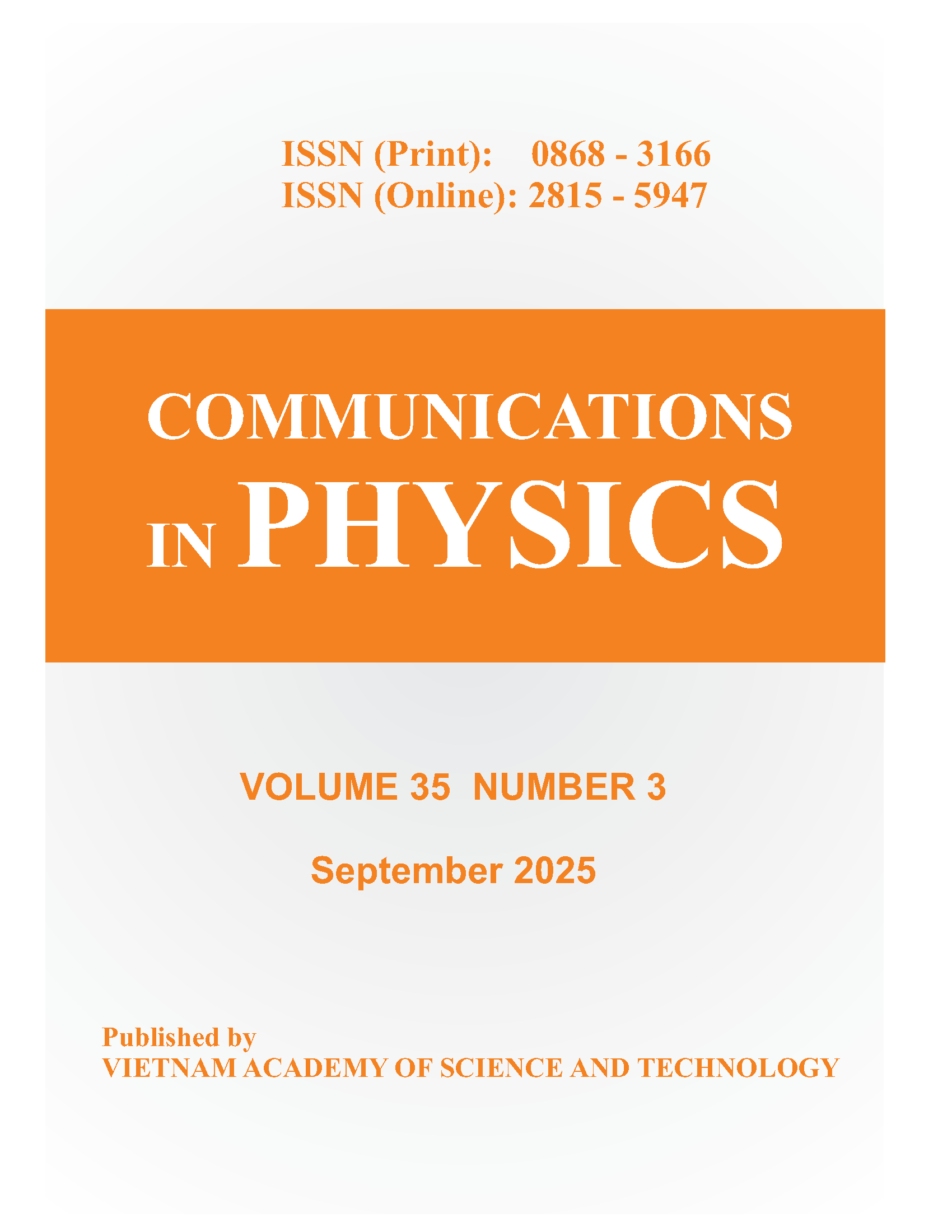Lepton Flavor Violation in Economical 3-3-1 Model with Neutrino Singlets
Author affiliations
DOI:
https://doi.org/10.15625/0868-3166/29/1/13556Keywords:
Electroweak interactions, Models beyond the Standard Model, Non-standard-model neutrinos, right-handed neutrinos, etc.Abstract
Lepton flavor violating (LFV) decays of charged leptons \(\mu\rightarrow e\gamma\) and SM-like Higgs boson \(h\rightarrow \mu\tau\) are discussed in the framework of the economical 3-3-1 model adding three additional singlets neutrinos (E331\(X_R\)). We will show that the appearance of new neutrinos and charged Higgs bosons in this model can result in interesting regions of the parameter space, which satisfy the recent experimental bound of \(Br(\mu\rightarrow e\gamma)\) as well as give large \(Br(h\rightarrow \mu\tau)\geq \mathcal{O}(10^{-7})\) . In these regions, the charged Higgs boson mass lies within the range of \(2-3\) TeV. Our results show that the LFV decays are important channels to distinguish the E331\(X_R\) and the original economical (E331) models, which predicts suppressed LFV decay rates.Downloads
Downloads
Published
How to Cite
Issue
Section
License
Communications in Physics is licensed under a Creative Commons Attribution-ShareAlike 4.0 International License.
Copyright on any research article published in Communications in Physics is retained by the respective author(s), without restrictions. Authors grant VAST Journals System (VJS) a license to publish the article and identify itself as the original publisher. Upon author(s) by giving permission to Communications in Physics either via Communications in Physics portal or other channel to publish their research work in Communications in Physics agrees to all the terms and conditions of https://creativecommons.org/licenses/by-sa/4.0/ License and terms & condition set by VJS.











